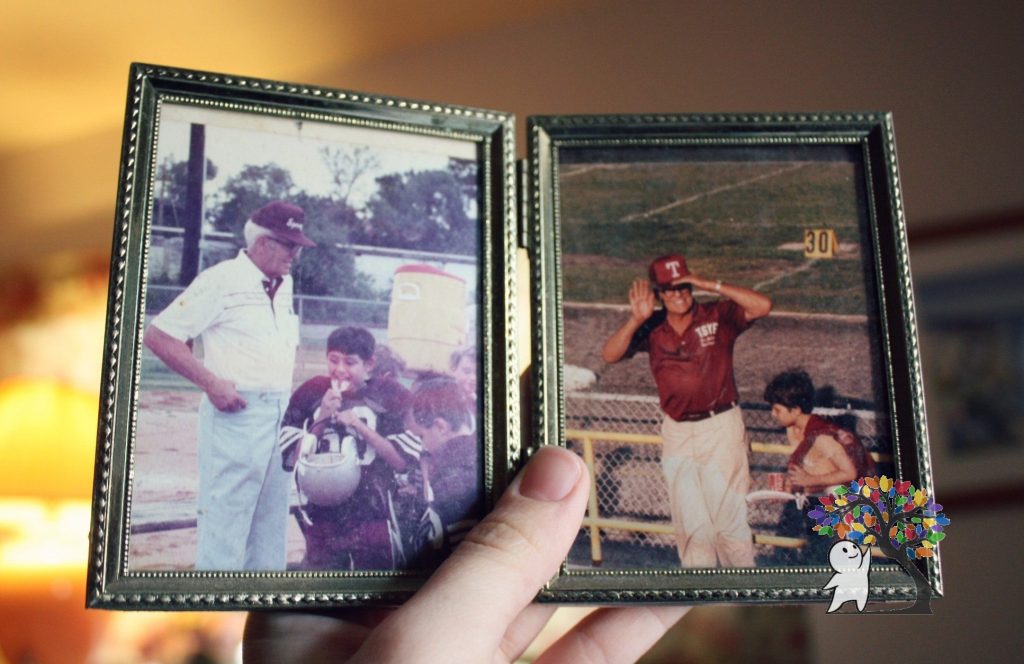5 Psychological Effects of Nostalgia

Nostalgia is something that most of us can relate to feeling at some point in our lives – it is often described as a bittersweet sense of longing for the places, relationships and experiences lost to one’s past.
Despite being a fairly universal experience that spans different countries and cultures, nostalgia has had to endure a largely negative reputation over the years. Nostalgics are often accused of ‘dwelling on the past’, or romanticising past events instead of viewing them as they really happened. Is this attitude unwarranted? A growing body of research implies that nostalgia could actually have a diverse set of positive and negative psychological implications. Here are five reasons why our relationship with nostalgia is a little more complex than simply taking off those rose tinted glasses:
1. Nostalgia makes us feel more connected to the world around us:
We are not just nostalgic for the past, but also who we spent the past with. Nostalgia often involves fondly remembering old friends, family members, relationships, and the good times we shared. By reliving these social connections through memory, nostalgia can remind us that we are loved, accepted, and gives us a sense of belonging in the world.
Source: Van Tilburg, W.A.P, Sedikides, C., Wildschut, T. and Vingerhoets, J.J.M. (2018) How Nostalgia Infuses Life with Meaning: From Socialconnectedness to Self-Continuity. European Journal of Social Psychology, 49, pp.521–532. doi: 10.1002/ejsp.2519

2. Nostalgia helps self esteem:
As previously mentioned, nostalgia can evoke valuable feelings of social connectedness. Recalling these happy memories of people and places with which we share an important connection has been found to raise levels of self esteem – particularly in those who enjoy engaging with nostalgic thoughts more than others! Basically, the more time we spend feeling nostalgic about good memories, the more reason we have to feel good about who we are. Who’d have thought?
Source: Cheung, W.Y., Sedikides, C. and Wildschut, T. (2015) Induced Nostalgia Increases Optimism: (via Social Connectedness and Self-esteem) Among Individuals High, But Not Low, in Trait Nostalgia. Personality and Individual Differences, 90, pp.283-288. doi: 10.1016/j.paid. 2015.11.028

3. Nostalgia can encourage us to aim towards the future:
Nostalgia is not only a past-facing emotion. Enjoying nostalgia has been linked to higher levels of optimism for the future, as cherishing memories instead of feeling trapped by them can provide us with the confidence and motivation to move forwards. By using nostalgia as a psychological resource, we can feel inspired to create more positive memories by exploring new situations, and working towards new goals.
Source: Sedikides, C. and Wildschut, T. (2016) Past Forward: Nostalgia as a Motivational Force. Trends in Cognitive Sciences, 20(5), pp.319-321. doi: 10.1016/j.tics.2016.01.008

4. Nostalgia affects the sense of self:
Big life changes such as moving away from home, losing someone close to us, or starting a new career can be challenging. These events sometimes cause us to question who we are, and can affect our sense of self as we begin to feel disconnected from the identity we had before life changed. Studies have revealed that we can restore and mediate identity during challenging times by engaging with nostalgic thought to remind ourselves where we come from, what we love, and who we are.
Source: Sedikides, C., Wildschut, T., Routledge, C. and Arndt, J. (2015) Nostalgia Counteracts Self-Discontinuity and Restores Self-Continuity. European Journal of Social Psychology, 45(1), pp. 52-61. doi: 10.1002/ejsp.2073

5. Nostalgia and depression:
Recent research indicates that nostalgic thinking can actually exacerbate depression if an individual views their past in a bad light, or negatively compares the present to the past. Lingering too long on these unhealthy thoughts leads to a pattern of rumination and depression, whereby the individual is likely to become entrenched in the past. Similarly, feeling nostalgic for a romanticised past that an individual considers ‘lost’ has been linked to worsening feelings of depression and psychological harm. In short, nostalgia can quickly become an unhealthy habit if we fixate on memories that stop us from moving on or make us feel poorly about our current life situation.
Source: Garrido, S. (2018) The Influence of Personality and Coping Style on the Affective Outcomes of Nostalgia: Is Nostalgia a Healthy Coping Mechanism or Rumination? Personality and Individual Differences, 120, pp.259-264. doi: http://10.1016/j.paid.2016.07.021

Ultimately, the important thing to take away from this is that nostalgia can be good or bad for us depending upon how we choose to engage with it. Indulging in a little nostalgia doesn’t have to be unhealthy, as long as you aren’t using it to preoccupy yourself with aspects of the past that cause you pain.



Responses